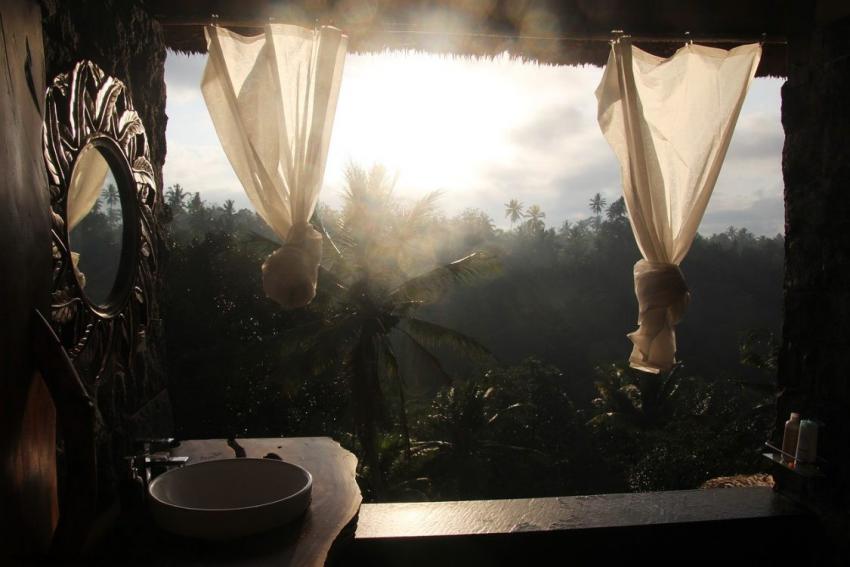
Your way to Sustainable Travel
Does travel and environmental protection go hand in hand? What does ecotourism mean and what are the benefits? How do I find sustainable travel ? How can sustainable tourism affect local communities?
2017 was the International Year of Sustainable Tourism for Development. You didn’t know that? The UN General Assembly has declared this year to underline the importance of sustainable tourism.
What does sustainable living mean?
The term “sustainable” is on everyone’s lips in times of environmental pollution and exploitation of the earth – at least in the mouths of those who do not want to contribute to the deterioration of the situation, but are interested in its improvement.
People who live sustainably keep their ecological footprint as neutral as possible, i.e. they only consume as many resources as they really need – at least theoretically. Until a few years ago, this still had an eco-sounding touch, which was rather smiled at.
But nowadays people’s consciousness luckily has changed, many have become more tired of consumption and are more aware of their surroundings and environment. This is often referred to as ecological footprint.
The Ecological Footprint is the area of land needed to sustain a person’s lifestyle and standard of living (under today’s production conditions). It is referred to as a sustainability indicator.
This includes what we eat, where this food comes from, how we produce waste, how we move around … just to name a few. You want to know about your own ecological footprint? Here you can calculate it by answering a few questions.
Conscious lifestyle
However, a conscious lifestyle or sustainable living does not have to end in complete abandonment or impracticability. Even small things in everyday life, such as walking or cycling to closer destinations instead of cars mean something. This also includes the switch to green electricity and the general saving of electricity. HERE you will find even more tips for everyday life.
Others have adjusted their lifestyles, for example, to avoid unnecessary consumption and pay attention to sustainable products (clothing and food) in their daily consumption. No car is used, transportation is by public transport or CO2-neutral vehicles.
Energy and raw materials are saved as much as possible, whereby the energy consumed comes from renewable sources. Heating is carried out with CO2-neutral materials such as wood or geothermal energy and is eaten seasonally, locally and regionally.

How is travel related to sustainability?
If you want to live sustainably, you don’t have to give up your holiday, but the motto is “sustainable travel”.
The term sustainable tourism thus refers to all those factors that claim sustainability for themselves.
These include:
- Arrival, departure and transport in the country itself
- Type of accommodation
- Dealing with the environment of the visited country
- Respectful encounter with the inhabitants and the culture of the country
What is what?
The terms ecotourism or soft tourism have a very similar meaning and are used synonymously with the term sustainable tourism.
Ecotourism focuses on the protection of the environment of the visited country and an ecological approach to transport.
Soft tourism is a responsible use of the human, animal and material resources of the country visited, a type of tourism in which travellers adapt to the customs of the country and not vice versa.
In this sense, sustainable travel means a symbiosis of all measures to protect the earth, people and the environment.
Sustainable travel means compatible travel!
Although nature and landscape should be changed as little as possible or not at all for tourists in the sense of sustainability at the holiday resort, they should have the opportunity to get to know the country intensively and to experience the people and their culture as unadulteratedly as possible.
Organisation of sustainable tourism
Because more and more people are living in an environmentally conscious way, various tour operators have adapted their services to this group of people. From a fully organised all-inclusive tour in eco-wear to an individual bike tour with family connection on a farm, everything is possible. The gentle tourist can of course organize his ecological journey himself.
The aim of the organisation should be to get from A to B in an environmentally friendly way, to travel around the country in a climate-neutral manner, to eat and drink ecologically and to behave in an adapted and respectful manner.
Let´s get specific
It all starts with the transportation
The climate and atmosphere are most affected by aviation when converting the amount of emissions to the number of people in the aircraft and to the kilometres flown.
However, we must not forget that the same number of people would be transferred to a correspondingly large number of cars and the same distance, the emission of pollutants would be about the same.
That is why both flown and driven kilometres are the least compatible for our planet.
What can you do in transportation in particular?
- General avoidance of long journeys (Does it always have to be Asia? Does it have to be several times a year? Does it always have to be a flight?)
- Monetary contribution to organisations such as “atmosfair” as compensation for your own contribution to CO2 growth
- Use of public transport such as trains or buses
- Abstention from motor vehicles (cycling, running)

Sustainable accommodation
Not only the traveller but also the inhabitants of the country visited should benefit from this holiday. That’s why the focus is on fair prices: it’s not about being as cheap as possible, but about being as fair as possible. Resources (water, electricity, gas) at your holiday home should be treated sparingly and sparingly.
Depending on the demands of the tourists, accommodation must neither harm the environment nor change it in such a way that it or the people living in it are permanently harmed. Attention should be paid to where and with what means the accommodation was built and what materials were used.
Organic hotel or local host?
It is also important to know who the owner of the accommodation is: a large franchise company or a family that lives from it. How employees are treated and paid – at the guest’s expense (what the norm should be) or at their expense (which is often the norm) – a very important fact that can influence decisions.
The range of accommodation is endless: from the simple bamboo hut to the family Alpine guesthouse to the equestrian farm and much more. Many companies now receive state quality seals or economic test seals if they meet certain requirements. Travel and environmental protection are also easily reconciled in accommodation.
I introduce three ecofriendy hotels around the world for you.
Sustainable Eating
Anyone who eats and drinks sustainably at home also wants to do so on holiday. This primarily means that products from the host country are consumed. It takes a certainamount of curiosity about new things when you travel.
The cuisine of the country involved is always a culinary challenge. So why would anyone think of eating tagliatelle in China and ostrich meat in Austria?
Travel and environmental protection therefore also mean doing without long transport routes for the import of food. Of course this also applies to drinks: In India I drink Singha Beer and not Sauvignon Blanc.
It is a great financial benefit for local farmers when guests buy and taste their products. This leads to nice conversations, maybe an exchange of experiences about the preparation of the food and in the end even nice friendships. This is also part of ecotourism.
Sustainable Tourism: Culture and Activities
It is not always easy to set one’s own expectations of a target country correctly. Often the first enthusiasm may lead to disappointment about the difference in the host country – buses arrive too late or not at all, cleanliness is poor, medical care is not like at home.
But it is also part of gentle tourism to accept and respect the differences in foreign culture. For centuries Europeans have made the mistake of making other peoples happy through forced missionary work.
This mistake should never be repeated: Travelling is much more enjoyable and goes much deeper when you put yourself back for a short time and immerse yourself in a new colourful world.
Who needs a taxi if you have shoes?
A healthy person can walk many kilometres a day without suffering any damage. These routes can be extended even further by bicycle or even horse-drawn carriage. The holiday can be converted – CO2-neutral – into a pilgrimage, a theme trail or a horse trek.
So what are the benefits of ecotourism?
In the end, most sustainable travelers realise that the travel experience is much more intense and beautiful this way. You can’t imagine spending more time on a crowded Italian beach or in a Greek all-inclusive club complex anymore.
Sustainable travel therefore benefits not only the environment and the people of the host country, but above all the guest.
Sustainable travel makes you happy!
Yours





4 Comments
Naomi Dorland
Thanks for this article. We were very big travellers pre kids, and are starting to take our twins travelling as much as we can. I like to try to teach them about sustainability, and travel is one area we haven’t ventured into in regards to sustainability. Lots of great food for thought.
RK
Though very keen on sustainable travel , the carbon emissions and the long distant travels I often find hard to manage together . The intention is to reduce the footage however , what alternates we have?
Eisve
I love the topic! I think it’s so important to travel sustainably and give advises to people how they can do that too. I talk about it on my blog as well and give advices what to take for a trip and created a guide how to leave less waste.
I’m so happy that more bloggers are interested in this topic :))
Erika Ann
Sustainable living is really a hard but a rewarding discipline. Its not for the faint of heart but for those who truly desires the healing of our planet. I’m inspired by those backpackers who would walk the whole country if they have to. Great article! I hope more people would read this.